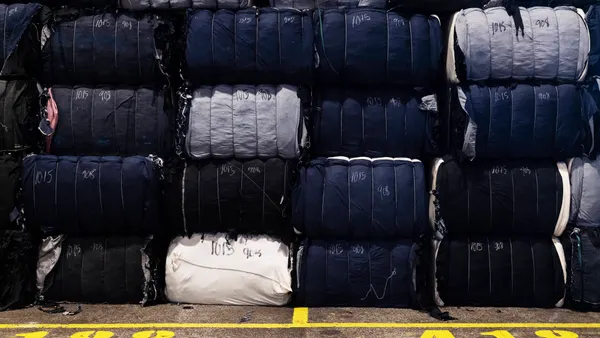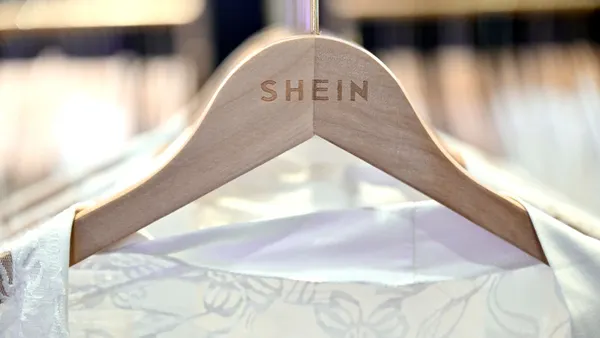Dive Brief:
- Textile technology company Intimiti Australia launched Celys last week, a newly engineered compostable polyester fiber made from recycled polyester, according to a release sent to Fashion Dive.
- It’s 95.4% compostable and biodegradable in 179 days, per the company. It’s also been certified as fully compostable by organizations including the Biodegradable Products Institute and The Seeding Logo.
- Intimiti said the fiber feels similar to cotton and can be produced at a lower temperature than regular polyester. In addition, the company says it’s low-pilling, has natural moisture management, and is a good match with natural fibers such as cotton, linen, wool and cashmere, due to its low dyeing temperature.
Dive Insight:
Most synthetic fibers, including virgin polyester, are non-biodegradable. Celys fibers are Intimiti’s first iteration of an alternative to conventional polyesters being offered to fashion brands. The Celys compostable polymer allows for microbial decomposition, which leaves only biomass, carbon dioxide and water. The material is made from traditional petroleum-based polyester, per the company.
Celys was created to tackle the problems of traditional polyester and the microplastics it omits through fashion industry waste, per the company.
"The main goal for targeting the fashion industry with Celys is to provide a sustainable, technologically superior and innovative replacement to traditional polyester materials,” Raymond Jiang, chief operating officer of Intimiti Australia, said in an email to Fashion Dive. “Celys eradicates the harmful microplastics concerns which currently exist by being compostable and biodegradable.”
Jiang added that the company is “on the way to creating a true textile to textile recycling technology” which he said would allow for more sustainable options for fashion brands “and an efficient closed-loop circular economy."
While Intimiti has been working to turn PET into recyclable, compostable fibers, other companies have been attempting to create their own alternative versions of polyester using other materials. Kintra Fibers, which makes bio-based and compostable synthetic yarns for the apparel industry, uses sugar rather than petroleum to produce its polyester-like fibers.
That company, which was formed in 2018, has recently partnered with H&M, Inditex, Reformation, and Bestseller to test and ultimately produce these fibers, which the company says could contribute to reducing the amount of microplastics in the environment caused by virgin polymers. The company received an $8 million funding round in April 2023 to spearhead its work.










